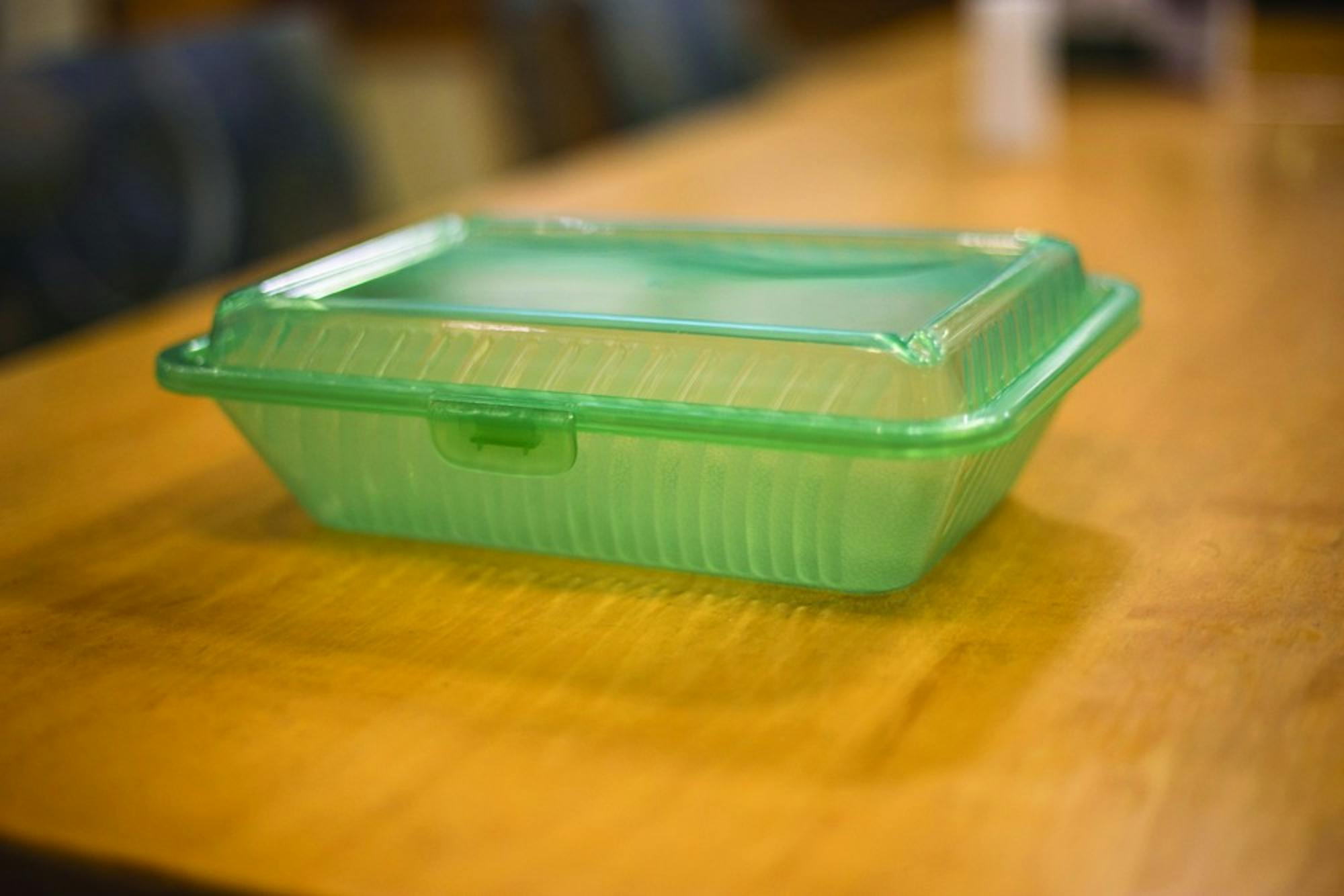Two years after the implementation of Green2Go, the program adopted by Dartmouth Dining Services that replaced disposable to-go containers with reusable ones, students are calling for more accessible drop-off locations and more simplicity in the to-go system.
Currently, Green2Go has been implemented in the Class of ’53 Commons as the only to-go option and at the Courtyard Café as the only to-go option for most food items. At the Courtyard Café, the switch is expected to reduce waste by seven tons per year. When finished with the containers, students can drop them off at any DDS location on campus, where they will be washed for continued use.
At ’53 Commons, around 400 disposable to-go containers a day were used before the switch to Green2Go, according to Madison Sabol ’18, who helped launch the program.
In an email statement, Plodzik wrote that DDS had purchased over 2,400 containers for the Courtyard Café since the Green2Go containers were made mandatory in early February of this year. He added that roughly 5,000 containers for ’53 Commons are in circulation.
Of 30 students waiting in Courtyard Café line around lunchtime last Saturday, 19 of them said that they owned a Green2Go container or carabiner. Students who didn’t own the containers explained their concerns with the initiative. A common issue among students was the need for more drop-off locations.
Valeria Andrade ’22 said she wanted an easier system for dropping off the to-go containers.
“I think there could be more drop-off places,” Andrade said. “Maybe if I remember to bring it, I can drop it off at Collis or the [Courtyard Café]. But if I don’t remember it, it’s just sitting in my room forever.”
In addition to the abandoned containers, some students said they had bought more than one container for an array of reasons, including lost carabiners and moldy containers.
“It’s a good idea in principle,” Clay Foye ’22 said. “The idea of reusable containers is appealing to me, despite the fact that I have three of them in my room.”
The missing containers and slow return rate has led DDS to worry about the feasibility of the program.
“There is growing concern that if students continue to purchase new containers vs. returning the old ones, it will become difficult to keep the program going,” Plodzik wrote.
To incentivize students to return their containers, the Courtyard Café offered free drinks in exchange for returning Green2Go containers the week that the containers became mandatory.
Members of the College’s Sustainability Office, including the students who spearheaded the Green2Go initiative at the Courtyard Café, said they are aware of these issues. Abby Bresler ’21, Meriem Fouad ’21 and Samantha Newman ’22 led the campaign for mandatory to-go containers in the Courtyard Café. They said they are open to hearing how they can improve the initiative.
“Constructive criticism is the most important thing we can get from students,” Fouad said. “I would want to encourage anyone who has thoughts to approach us or DDS.”
Newman said that the team behind the implementation of the Green2Go containers has shifted its focus to trying to eliminate the $4 buy-in and the carabiners by linking the Green2Go containers to a student’s ID.
Although some students may have not have a favorable opinion of Green2Go, the initiative is making a significant sustainability impact, according sustainability director Rosalie Kerr ’97.
“The numbers are not small,” Kerr said. “There were thousands of plastic containers being thrown away before Green2Go.”
While Kerr recognized students’ concerns, she also explained how Green2Go is about “asking students to do something” by returning their containers and remembering their carabiners, which helps keep students accountable.
Some of the students behind Green2Go said they also want the student body to understand its responsibility in creating a synergy between individuals and sustainability through the use of Green2Go.
“Anytime you want food to-go, it means you’re interacting with the idea of sustainability,” Bresler said.
Newman agreed with Bresler, while emphasizing sustainability at large.
“I think [Green2Go containers are a] very visible symbol of sustainability on campus, which hopefully helps people think about it,” Newman said. “It has really highlighted the room for growth we still have as a student body with thinking about sustainability.”
Newman added that the Green2Go team is working to expand the existing program to the Collis Café.




